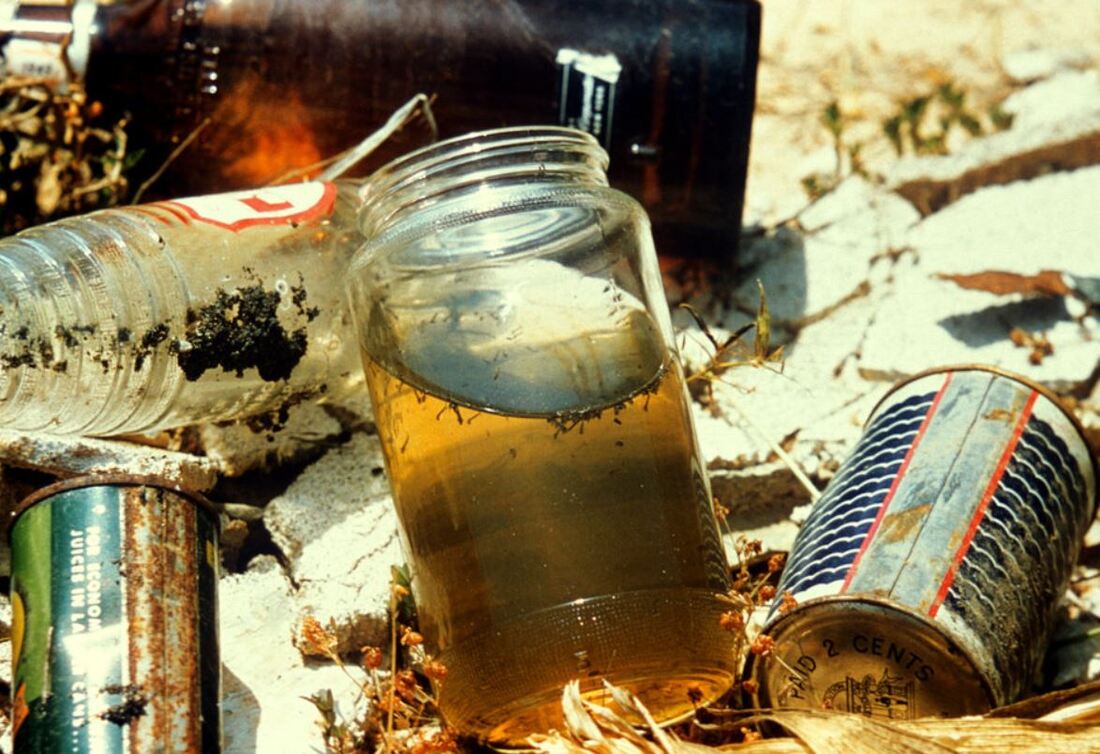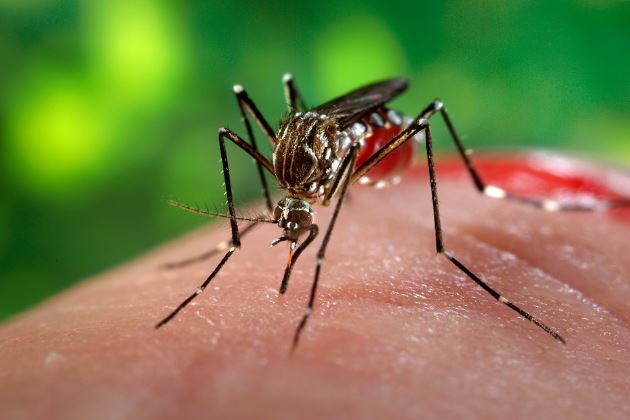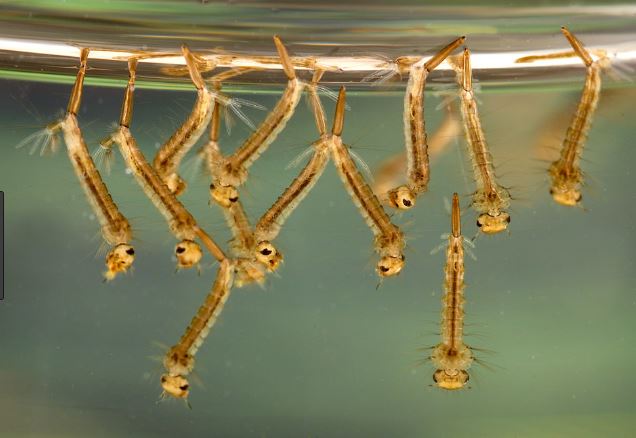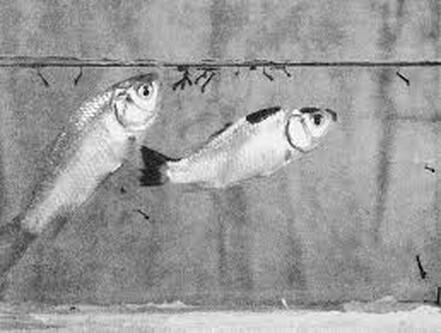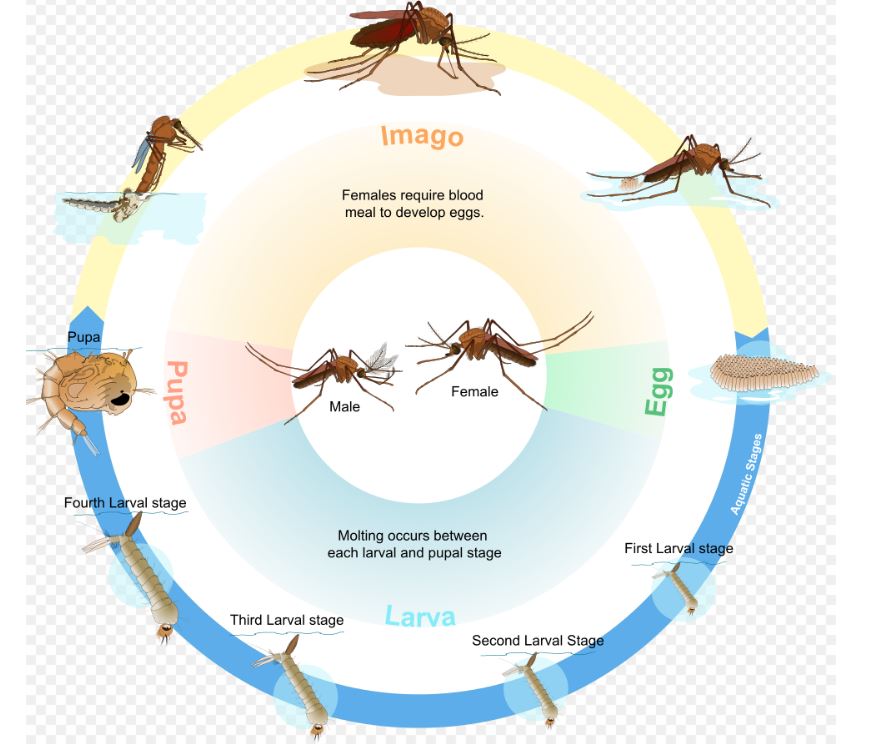Welcome to RVA Pest Control, servicing Richmond and the surrounding areas
|
Characteristics of mosquitoes: Mosquitoes are known for their single pair of wings, long skinny legs and a head with a defined tubular mouth (also known as its proboscis). Small, tiny scales cover the majority of their body and wings, and they can range anywhere from 3 to 9mm. The average lifespan of a mosquito is expected to be 2 weeks to 6 months. Habits and Lifestyle: The adult female mosquitoes are the only ones capable of having the mouth parts needed to suck blood. The blood the female mosquitoes pull from their host is a nourishment and a source of protein for their eggs. For food, however, mosquitoes (male and female) feed on nectar from flowers. Adults mosquitoes become active and alert around dusk until dawn, but are also known to come out during cloudy and shady areas. Mosquitoes are drawn to exhaled carbon dioxide, body odors and temperature, and movement when picking out their host. Difference Between Mosquitoes and Flies? Mosquitoes have long, thin legs and a proboscis in which the females use to bite their host in order to draw blood, so they can lay eggs. Flies, on the other hand, typically do not bite and are much smaller than mosquitoes. A few health risk factors that can come from mosquitoes are diseases such as West Nile Virus, dengue and malaria. However, since there are more than 3,000 species of mosquitoes, the three primary ones that are known for spreading diseases are the Anopheles, Culex and Aedes mosquitoes. There are a variety of ways in which mosquitoes can transmit diseases. In the case of malaria, parasites attach themselves to the gut of a female mosquito and enter a host as she feeds. In other cases, such as yellow fever and dengue, a virus enters the mosquito as it feeds on an infected human and is transmitted via the mosquito’s saliva to a subsequent victim. Infestation Signs: One major sign of an infestation is when there is a high level of mosquito activity that includes the buzzing of the female mosquitoes and their bites. Symptoms of mosquito bites includes mild irritation, to intense inflammation and swelling. These bites can also create a red bump that results in itching. The reaction from a mosquito bite is due to their saliva. |
More images of mosquitos
Image of a mosquito feeding on a human
Close-up of mosquito larva getting ready to hatch
Fish Feeding on Mosquito Larvae
|
How to Treat Mosquitoes:
Mosquito treatment involves the use of source reduction along with the help of chemical controlling products. Water sources are a high breeding ground for mosquitoes, so eliminating this source can be an effective way to eliminate the infestation. Even though the source reduction method is a more effective, long-term approach, the mosquito treatment plan may require using chemical products to supplement source reduction.
The mosquito treatment plan first start with your pest management professional, in which a thorough property inspection takes place to identify the kind of mosquitoes causing the issue. Once your pest management professional identifies the type of mosquito, they will prepare a treatment plan that provides recommendation and assistance for both source reduction and chemical product uses.
A few source reduction recommendations might include:
Contact us today to get your mosquito infestation under control!
The mosquito treatment plan first start with your pest management professional, in which a thorough property inspection takes place to identify the kind of mosquitoes causing the issue. Once your pest management professional identifies the type of mosquito, they will prepare a treatment plan that provides recommendation and assistance for both source reduction and chemical product uses.
A few source reduction recommendations might include:
- Gathering a diagram of your property that specifies the mosquito development sites. These sites typically are non man-made that will collect water. A few examples could be low areas on the property that collect water after rain, clogged gutters, child swimming pools, uncovered boats, tree holes or rubbish/debris that holds water.
- Providing recommendations to exclude mosquitoes from getting inside the home
- Providing recommendations for vegetation management.
- Chemical products are sometimes needed for mosquito treatment of yards and decks.
- Applying insecticides to vegetation that adult mosquitoes use for sheltered resting sites.
- Applying insect growth regulator that prevent mosquito development in their water environments
- Applying microbial insecticide products that cause mosquito mortality in their water environments
Contact us today to get your mosquito infestation under control!

